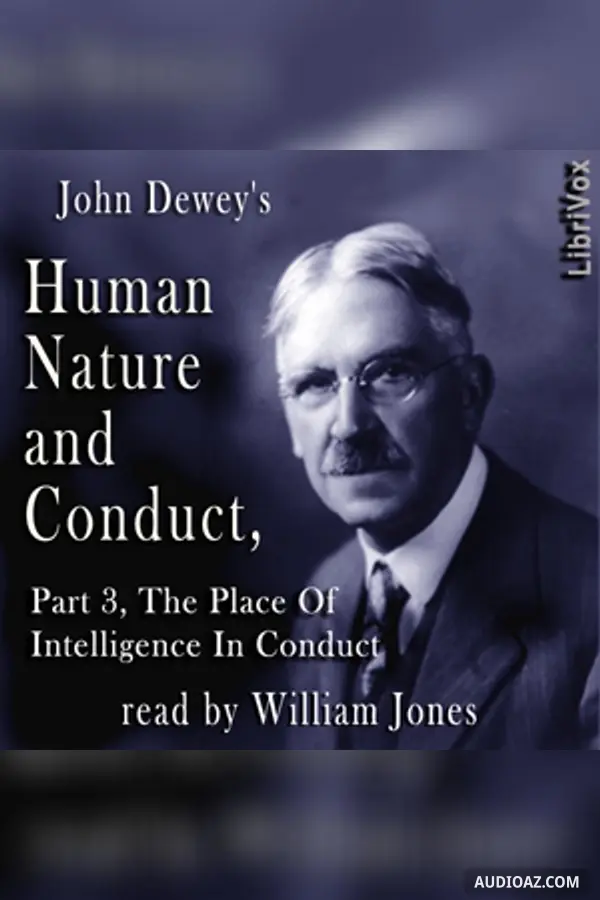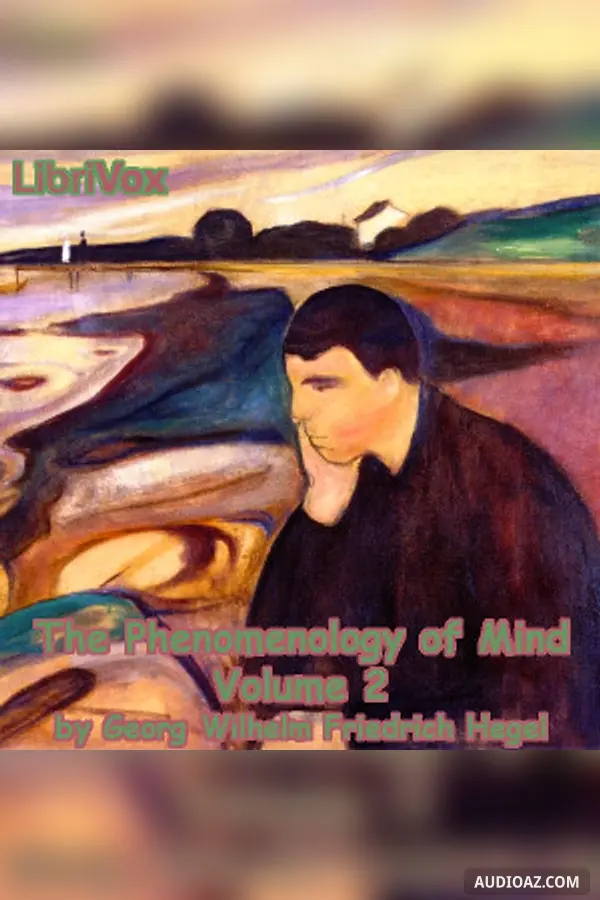
《Human Nature and Conduct - Part 3, The Place of Intelligence In Conduct》 - 免费有声读物
作者:John Dewey
语言:English
1 / 9Ch1. HABIT AND INTELLIGENCE: Habits and intellect; mind, habit and impulse.
- 1. Ch1. HABIT AND INTELLIGENCE: Habits and intellect; mind, habit and impulse.
- 2. Ch2. THE PSYCHOLOGY OF THINKING:The trinity of intellect; conscience and its alleged separate subject-matter.
- 3. Ch3. THE NATURE OF DELIBERATION: Deliberation as imaginative rehearsal; preference and choice; strife of reason and passion; nature of reason.
- 4. Ch4. DELIBERATION AND CALCULATION: Error in utilitarian theory; place of the pleasant; hedonistic calculus; deliberation and prediction.
- 5. Ch5. THE UNIQUENESS OF GOOD: Fallacy of a single good; applied to utilitarianism; profit and personality; means and ends.
- 6. Ch6. THE NATURE OF AIMS:Theory of final ends; aims as directive means; ends as justifying means; meaning well as an aim; wishes and aims.
- 7. Ch7. THE NATURE OF PRINCIPLES: Desire for certainty; morals and probabilities; importance of generalizations.
- 8. Ch8. DESIRE AND INTELLIGENCE: Object and consequence of desire; desire and quiescence; self-deception in desire; desire needs intelligence; nature of idealism; living in the ideal.
- 9. Ch9. THE PRESENT AND FUTURE: Subordination of activity to result; control of future; production and consummation; idealism and distant goals.
关于
John Dewey, an early 20th Century American philosopher, psychologist, educational theorist, saw Social Psychology as much a physical science (with rules and predictive power) as Biology and Chemistry. This project encompasses Part 3 of 4 of his book Human Nature and Conduct. An Introduction to Social Psychology, published in 1922. Dewey's uses the words "HABIT" and "Impulse" as a specialized catch-all words to describe how a person and his/her objective environment interact. This interaction is the basis for moral and ethical judgments. Dewey writes: "All habits are demands for certain kinds of activity; and they constitute the self.” In other places he also asserts that "Habits are Will." In this third part of the book, Dewey describes how we make ethical judgments (Dramatic Rehearsal), the occasions which call upon the exercise of intelligence, and the relationship among aims, goals, means and ends, and emotions. ~ Summary by William Allan Jones, Soloist
评论
成为第一个评论的人
此内容还没有任何评论。开始对话吧!
查看更多
标签: Human Nature and Conduct - Part 3, The Place of Intelligence In Conduct audio, Human Nature and Conduct - Part 3, The Place of Intelligence In Conduct - John Dewey audio, 非小说类 audio, 社会科学(文化与人类学) audio, free audiobook, free audio book, audioaz






